Rishi Sunak pitched himself as the change candidate at the next election in his speech to Conservative party conference this afternoon. It was a bold move after 13 years, to argue that ‘if this country is to change, it can only be us who do it’, and to complain that ‘politics doesn’t work the way it should’. He didn’t go so far as to repudiate his predecessors: in fact, he said he didn’t want to ‘waste time’ going over the past and the ‘difficult circumstances’ in which he came into office. But he did refer to a ‘30-year status quo I am here to end’ – at that point in the speech it was in connection to Keir Starmer as the ‘walking definition’ of that status quo, but the past 13 years of status quo have been Tory, not Labour.
Either way, Sunak repeatedly pitched himself as the man who is dismantling the consensus, whether it be on transport policy, health or immigration.
So what is he actually going to change? HS2 was the first policy the Prime Minister went to, saying it was the ‘ultimate example of the old consensus’, and that ‘the facts have changed and the right thing to do when the facts have changed is to have the courage to change direction’. He confirmed – as reported on Coffee House last night – that he was cancelling the rest of the HS2 project, and reinvesting the money in transport projects across the North and the Midlands. After a fortnight of headlines about letting down the North, Sunak tried to reframe the announcement as a ‘new Network North’ and that ‘no government has ever developed a more ambitious scheme for northern transport’. He tried to turn the arguments from his critics back on them, saying that while he respected those who disagree with him, ‘they should have the honesty to admit that they would now be cancelling the hundreds of alternative projects right across the conference that people will benefit from’.
As all eyes were on Andy Street and whether he will resign in protest from the West Midlands mayoralty, Sunak said he had ‘huge admiration and respect for’ him, insisted ‘I know we can work together’, and promised to ‘work with Andy Street to extend a West Midlands Metro’. It sounded as though he wasn’t fully confident that Street would agree.
His second area for change was the NHS. Much of this section was a re-announcement of previous policies on workforce, patient choice and productivity. He attacked the British Medical Association, which the Tory party has clearly decided can reasonably be characterised as being a militant trade union. But he then moved onto preventive care, and the pre-trailed smoking ban, with the smoking age rising by one year every year. ‘This means a 14-year-old today will never legally be sold a cigarette’, he said. There were still some gasps in the hall as he announced it, and Sunak swiftly moved to explaining why, as a Conservative, he thought this change was acceptable: ‘Unlike all other legal products, there is no safe level of smoking.’ That may go some way to answering questions about a slippery slope to other products that are associated with ill health, including alcohol and ultra-processed food.
The third major change was in education. It is now his ‘main funding priority in every spending review’, which will provoke an interesting response from the more demanding spending areas like health. Once again, his education announcement had been pre-trailed: abolishing A-levels and bringing them together with technical qualifications in a ‘new single qualification for our school leavers’ called the Advanced British Standard. His case for change was that students weren’t spending enough time in the classroom and that technical education had not received the respect it deserves. That final point is one politicians of all parties have been making for decades, but it’s not clear who since Ken Baker has done much about it.
Sunak used immigration as another example of the way he had gone against the consensus, which he claimed said ‘there was nothing we could do about it’. He said he was ‘confident that once flights start going regularly to Rwanda, the boats will stop coming’. It may actually turn out to be more convenient for the government if the flights don’t start going regularly: then the Prime Minister won’t have to answer questions about why some boats are in fact still coming.
Sunak’s speech was well-argued and structured, but it wasn’t revolutionary
We were promised a ‘personal speech’. He opened with his own family section, joking once again about his father being a GP and his mother a pharmacist, and thanking them for the start in life that they gave him. Later, he told the hall ‘my values are simple: service. family. work’. He spoke about his grandparents and how much the UK had done for his family, adding: ‘The United Kingdom is also the most successful multi-ethnic democracy on earth.’
The attacks on Labour came at the start and end of the address. Like Penny Mordaunt who spoke shortly before the Prime Minister, he described Keir Starmer as being a flip-flopper who ‘just says whatever he thinks will benefit him the most’, and that Labour’s stall was ‘to do and say as little as possible and hope no-one notices’. And there was the Corbyn attack: ‘Keir Starmer might want us to forget about his repeated support for Jeremy Corbyn, but we never will.’ He did deal with his own internal opposition, though didn’t name Liz Truss or the other disruptive figures. But he did take care to say early on that ‘I know you want tax cuts. I want them too, and we will deliver them. But the best tax cut we can give people right now is to halve inflation and the cost of living.’
Did this speech really amount to an end to a 30-year consensus and the start of politics changing? It was well-argued and structured, but it wasn’t revolutionary. Sunak described what he announced as ‘three huge decisions to change the direction of our country’. His peroration offered a vision of his ‘brighter future’, none of which was really particularly controversial. What Conservative MPs wanted from this speech was a sense that Sunak will be able to give voters the reason they are looking for to stick with the Tories rather than have to move to Labour at the next election. The rail reforms are probably the most tangible – but they are of course also the most controversial.
Got something to add? Join the discussion and comment below.
Get 10 issues for just $10
Subscribe to The Spectator Australia today for the next 10 magazine issues, plus full online access, for just $10.


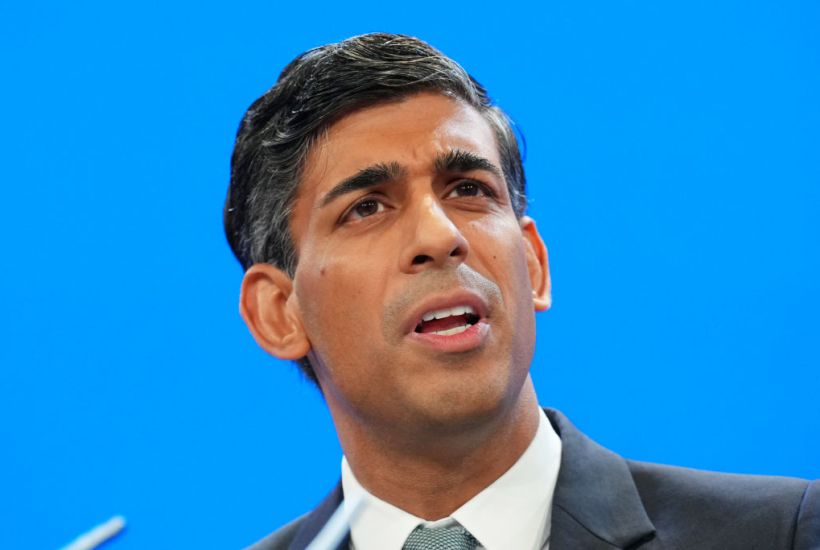
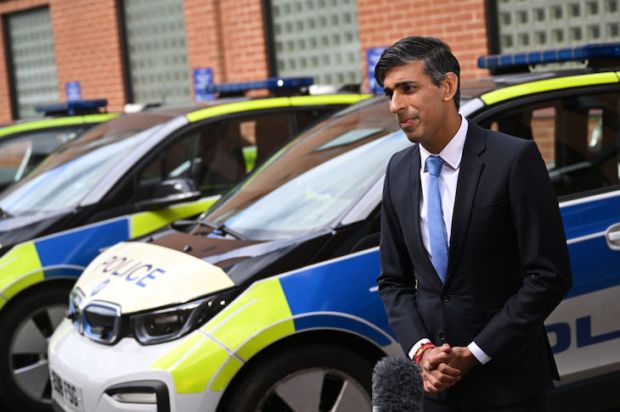

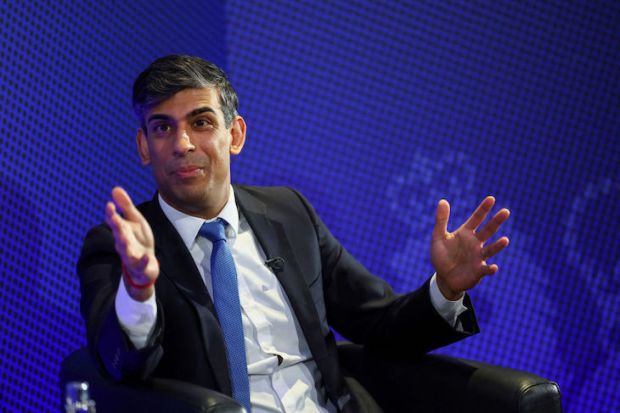
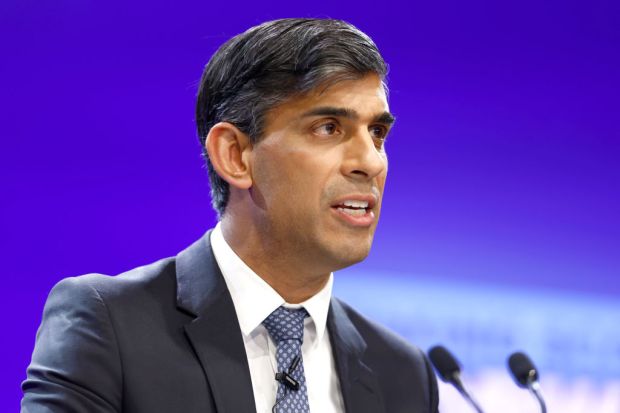
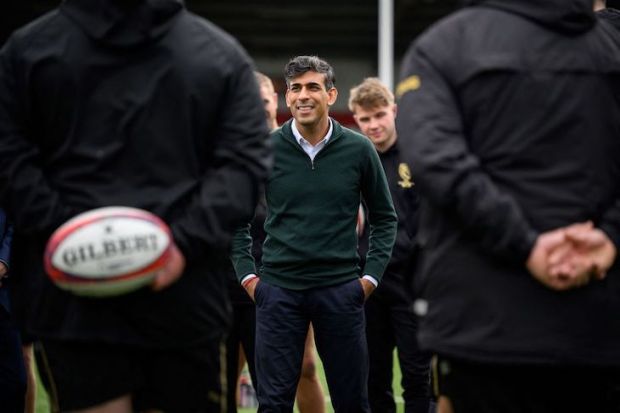
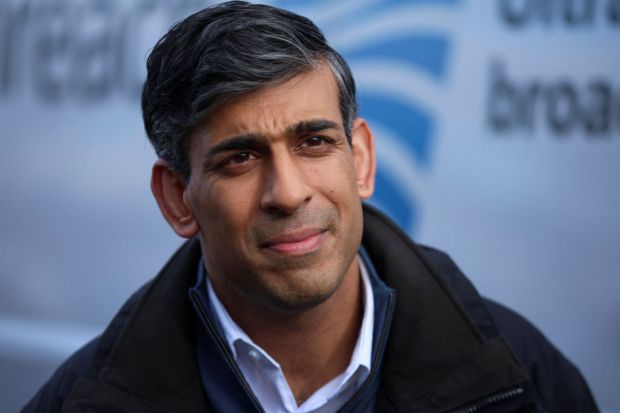












Comments
Don't miss out
Join the conversation with other Spectator Australia readers. Subscribe to leave a comment.
SUBSCRIBEAlready a subscriber? Log in